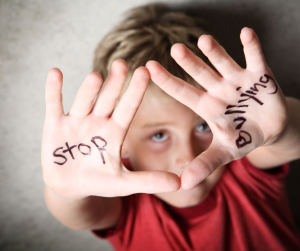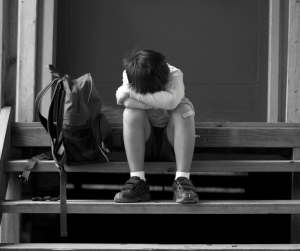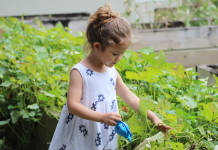October is Bullying Prevention Month and can be a difficult thing for many parents to discuss. It is important to talk to your kids about bullying so they can be prepared in case they find themselves in these situations. Bullying can leave emotional scars, and can have long-lasting effects if knowledge and tools aren’t put in place. In recognition of Bullying Prevention Month, I’m sharing five tips for talking to children about bullies. My wish is that our children can be a beacon of hope for others a we can all live in harmony.
1. How Do You Know When It’s Bullying?
Basically, bullying is when someone uses verbal, psychological, or physical ways to harm another person. Every day after school or during dinner, I ask my littles what the high and low points of their days were. This creates a routine, but also an opportunity for your kids to let out their feelings and for you to notice common warning signs. Some warning signs may include: if your child is acting differently, they are anxious, not eating normally, not sleeping well, they are moody or more emotional, they don’t enjoy things they did before, or they try to avoid certain situations.
2. My Child Witnessed Someone Being Bullied
There are likely going to be times when your child saw someone else getting bullied but they weren’t entirely sure what was going on. If you child isn’t sure what happened, ask open-ended questions. Where did this happen? Or, what was going beforehand? How did the child respond afterwards? How would you feel if this happened to you? I always tell our kids, if you see something, say something. It’s imperative to tell an adult if they saw bullying taking place.
3. How Can My Child Respond to Being Bullied?
Here are some ways to encourage your child to respond to a bully:
- Be brave: tell the bully firmly to stop, and then walk away from them.
- Tell a grown up: if the bullying is happening at school, the school may be able to help and stop the bullying.
- Use a buddy system: walk or hang out with a group of friends.
- Lastly, if the bullying is happening online do not respond to the accusations.
4. My Child is the Bully, What Do I Do?
Set out a time to calmly talk to your child. Try to find out the root cause to why they made the choice to start bullying others. Also, dig deeper in your own home to evaluate if bullying was happening within your own family unit. Let them know this behavior will not be tolerated, set clear consequences and state the disciplinary action.
Be sure to create and open channel of communication with your kids to follow up. Also allow them to express their feelings whether it may be through conversation, journaling, screaming into a pillow, exercise, or therapy.
5. Seek Professional Help
There are many resources available to help when a situation arises. Counselors and administration at your child’s school are trained to help in bullying situations. Seek out mental health help from local therapists or your child’s pediatrician.

It might be hard to start these conversations and that is ok! Pull from your own experiences, growing up, to help create a safe space. Lastly, If you child is being bullied, please remind them, that they are not alone and this is not their fault. I truly hope this help. Let’s raise kind and repsonbile humans.











